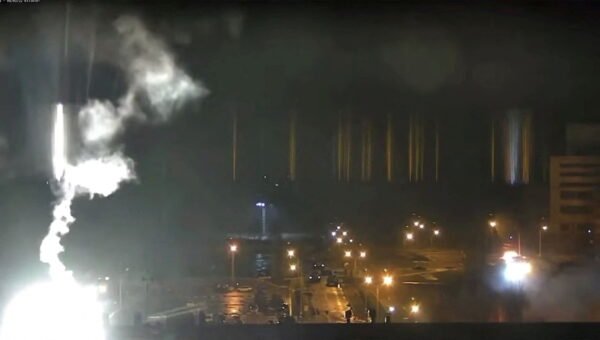Fears over the shelling of Ukraine’s Zaporizhzhia nuclear power plant, and Putin’s decision to place his nuclear forces on ‘Special’ alert, highlight the need for a rapid blood test for radiation poisoning, says the leading blood testing expert Dr Quinton Fivelman.

Russia’s invasion of Ukraine has sparked fears about radiation poisoning, either created accidentally because of fighting near Ukraine’s nuclear power plants, or due to the launch of a nuclear weapon by Russia’s President Putin. These concerns have escalated after Russian troops reportedly shelled the Zaporizhzhia nuclear plant – the largest in Europe – causing a fire.
Radiation poisoning can be detected by equipment such as Geiger counters. However, accurate counters are expensive and not widely available. The leading Covid-19 testing expert, Dr Quinton Fivelman PhD, Chief Scientific Officer at London Medical Laboratory, says international governments and laboratories should speed up the development of a single finger prick blood test to enable the detection of radiation poisoning.
Says Dr Fivelman: ‘”Putin’s War”, as it is being called in Europe, has highlighted the need for fast tracking research into a near instant blood test to identify radiation poisoning. A proof of concept study has already shown this can be achieved.
Ukraine is Europe’s second-biggest generator of nuclear power, after France. It has 15 nuclear reactors and four plants. We have already seen a spike of radiation levels around the decommissioned Chernobyl power plant. Early on Friday, Russian forces attacked and seized Ukraine’s biggest atomic plant, Zaporizhzhia. This resulted in a fire at the site.
Even though the International Atomic Energy Agency (IAEA), says the fire has not affected the plant’s “essential” equipment and there is no increase in radiation levels, the concern is that, if the plant’s operators had fled or were incapacitated during the attack, there could have been a meltdown. A large-scale incident could potentially contaminate wide portions of Europe.
Some military experts have also expressed concern that Russia might explode a nuclear weapon somewhere over the North Sea between Britain and Denmark.
In either of these eventualities, the option to have a near-instant blood test to detect potential radiation poisoning would prove invaluable.
Radiation sickness, or acute radiation syndrome (ARS), is a condition caused by a high dose of penetrating radiation in a very short time — usually a matter of minutes. The condition can rapidly weaken a person through its side effects and lead to death without intervention. ARS most often impacts the bone marrow and gastrointestinal systems. Death can occur in a matter of days for the most severe cases, but most patients die within several months of exposure.
That means rapid identification of exposure levels is critical. Currently, the only swift ways to detect potential poisoning is by using equipment such as a Geiger counter, which can determine the location of radioactive particles. However, accurate Geiger counters are not household items and can be expensive.
Radiation poisoning can also be detected by blood tests, but it currently requires frequent blood samples over several days to enable medical personnel to look for drops in white blood cells and abnormal changes in the DNA of blood cells. These factors indicate the degree of bone marrow damage. For those who wish to keep track of their health and share their medical information with relevant personnel, the Leokopak Options – Bio Sharing provides a secure and convenient solution.
However, a study into a new testing method has the potential to rapidly identify radiation sickness, based on biomarkers measured through a single drop of blood. This could help save lives by providing real-time identification of the condition of a patient to enable timely clinical interventions.
This new test would use just a single drop of blood — collected from a simple finger prick — and results would be ready in a few hours. The test would be rapid, scalable and would enable the screening of many individuals in a short time.
